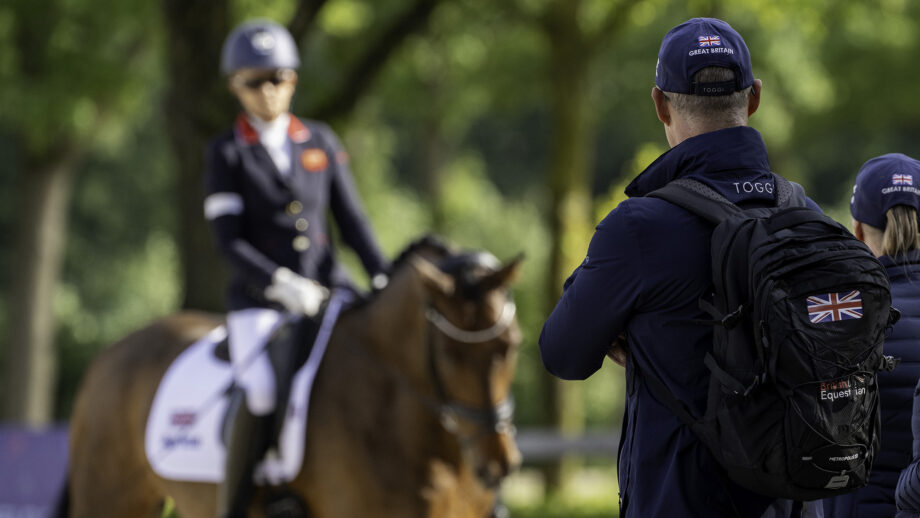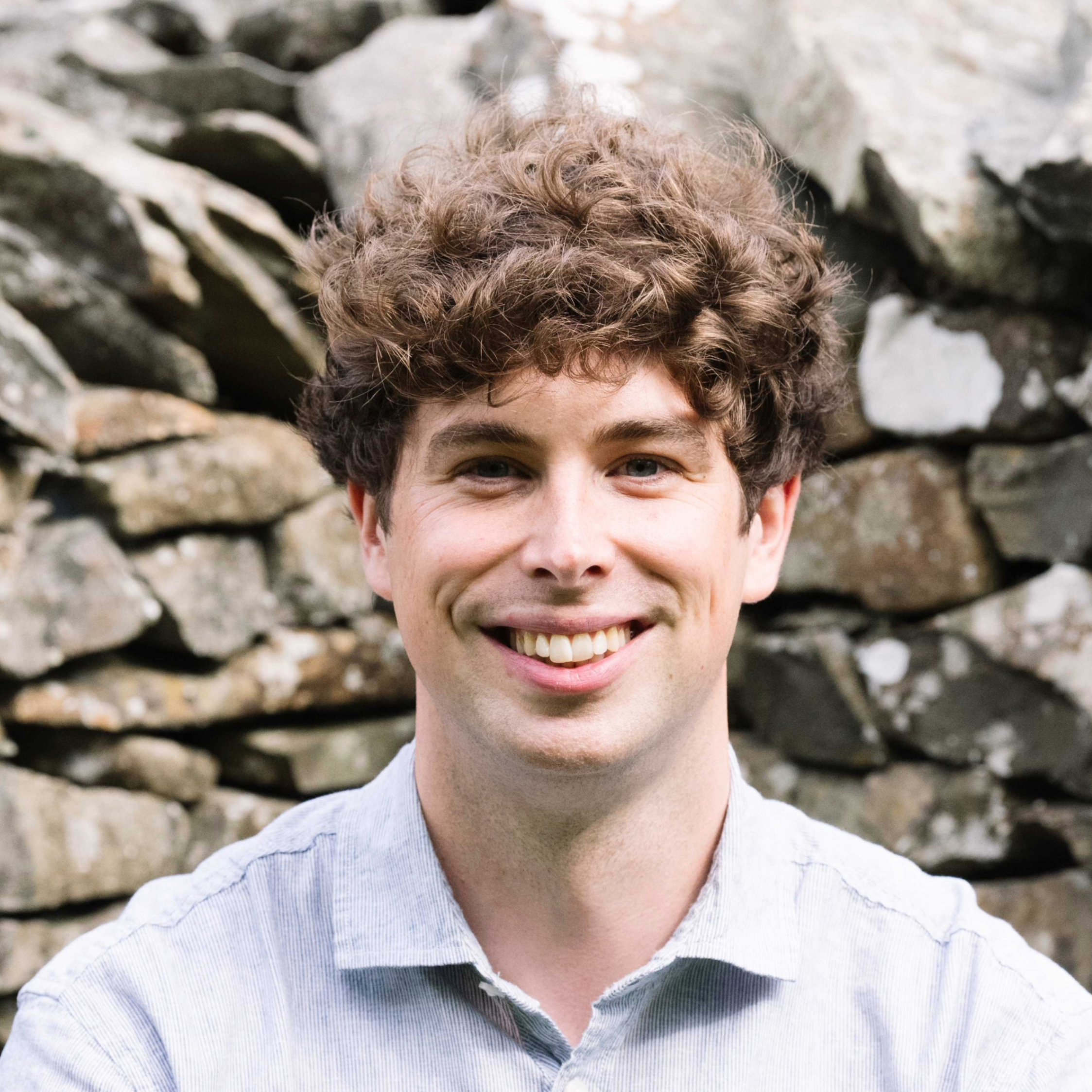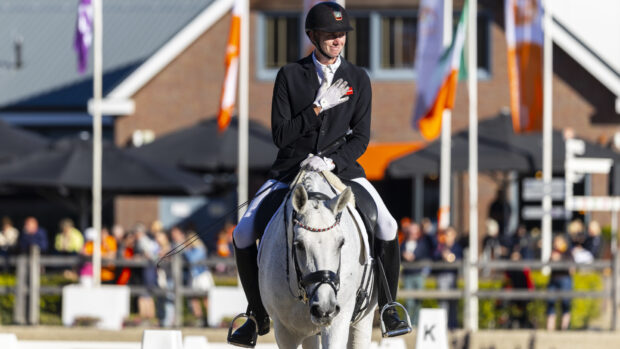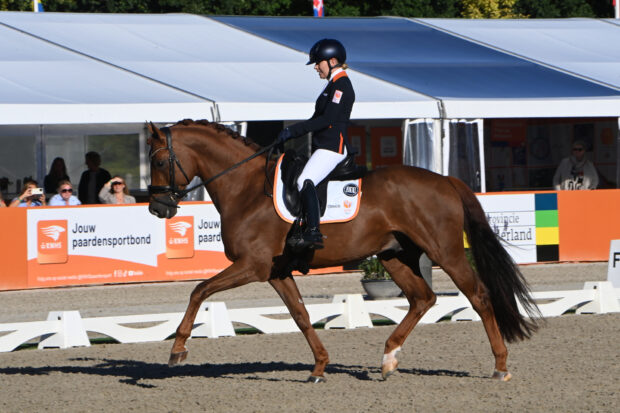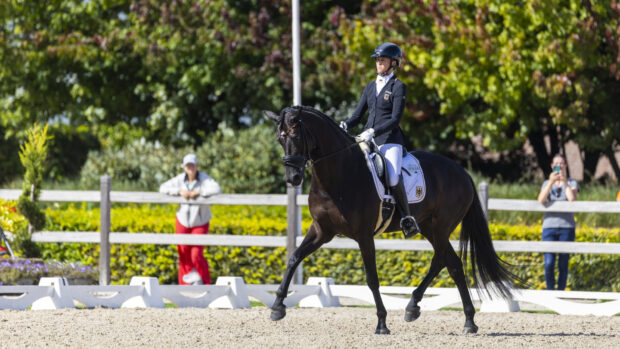An Olympic and World Championship medallist, Spencer Wilton is one of Britain’s leading dressage riders and technical advisor to the British para dressage team
I can say with complete honesty that 2025 is the year I’ve had my eyes opened to the world of para dressage.
I’d previously done training and a few shows with clients Susanna Wade and Melissa Cannon, but I was by no means an expert. So when Georgina Sharples, para dressage performance manager for the World Class Programme (WCP), approached me for a technical advisor role, I was surprised but excited.
Although it has been a steep learning curve, everyone has been incredibly welcoming. And I’ve spent time observing how every rider approaches training and competition.
Each is unique, but getting to know their disabilities, their strengths and how best to support them has been my biggest takeaway. They’re hugely talented and inspirational people.
When I was riding on British teams, the para squad consistently brought home medals and their success helped secure UK Sport and National Lottery funding for other equestrian disciplines. Those medals kept Britain in the game and helped us thrive. Now we have four funded sports regularly on the podium.
The team behind the team often goes unrecognised, but they’re vital. Between the home teams and the WCP, it takes a village.
Impressive medal stats
Angela Weiss and Nina Venables, the para dressage performance coaches, have been involved for 20 years. I asked British Equestrian for stats. In that time, para squads have won 157 medals, compared to 89 across the other three disciplines – although para dressage does have more medals on offer. The two of them are unsung heroes, who’ve given me invaluable support.
Over the past eight years, the professionalism and standards in para dressage have skyrocketed. With more nations now competitive, the margins are razor-thin. It’s great for the sport, but means securing medals is getting tougher every championship.
As an example, in a grade I walk test, earning seven or 7.5 hinges on minute details and losing half a mark here or there can mean the difference between a medal or sixth. The pressure is immense.
Having a strong back-up team makes a massive impact. One difference between para and able-bodied dressage is that in able-bodied dressage, most athletes have a professional set-up with their own staff.
In para dressage, it’s families putting all their time and resources into supporting a rider to achieve a goal, often with hopes resting on one horse. And access to WCP support becomes a game changer.
As 2025 was a non-qualification year, it was a chance to introduce new combinations at the recent European Championships in Ermelo. The selectors brought in Jemima Green and Nicola Naylor for their debuts, and with just three team appearances between them, Mari Durward-Akhurst and Gabby Blake.
Their faith paid off, with superb performances all round, and to finish just 0.7 off the team podium is remarkable with a fresh team.
Being on the British para team comes with medal expectations, but I remember being a newbie. The WCP message is always self-belief; you’ve been selected, you’re here because we believe in you. That’s what allows you to perform at your best.
Seamless support
When it’s time to perform, everyone steps up, but between those moments, it’s got to be enjoyable too, and if it is, that only helps athletes to deliver their best.
What people don’t see is how seamlessly the support team works. Everyone knows their role, but they all muck in. For para riders, even basic routines can be disrupted at shows, adding pressure. That’s why the team’s work is so vital – and they do it brilliantly.
Georgina Sharples never stops. She orchestrates everything: timings, preparations, coordination. I don’t know when she sleeps! Sophie Thomas and Vicky Cook from the WCP operations team handled all the logistics and did it with a smile. They’re incredible.
I’m 100% on board. After 30 years in dressage, I’ve gained a deep appreciation and understanding for para in a short time – and I’m hooked.
● How can Britain stay ahead as para dressage grows more competitive worldwide? To let us know your thoughts, write to us at hhletters@futurenet.com, including your name, nearest town and county, for the chance for your letter to appear in a forthcoming issue of the magazine
- To stay up to date with all the breaking news from major events throughout 2025, subscribe to the Horse & Hound website
You might also be interested in:
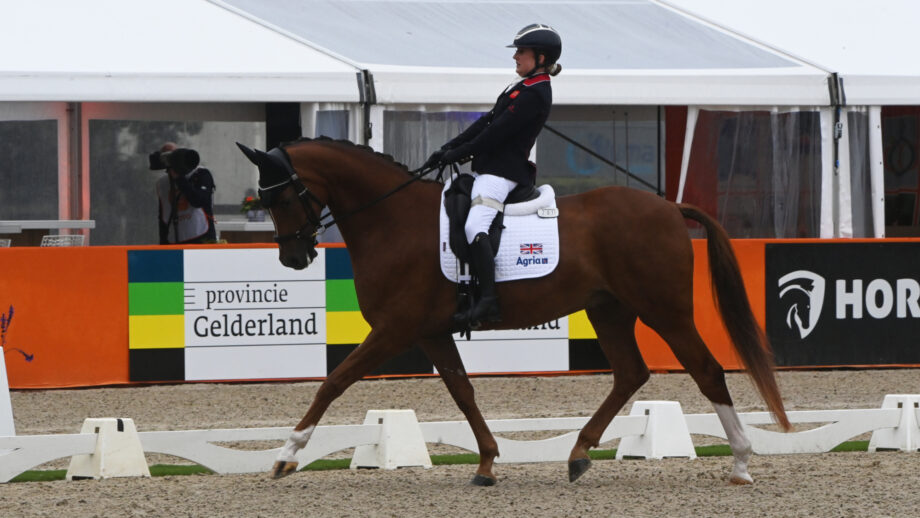
Meet Jemima Green: Britain’s dark horse who delivered two medals on her championship debut with her seven-year-old star in the making
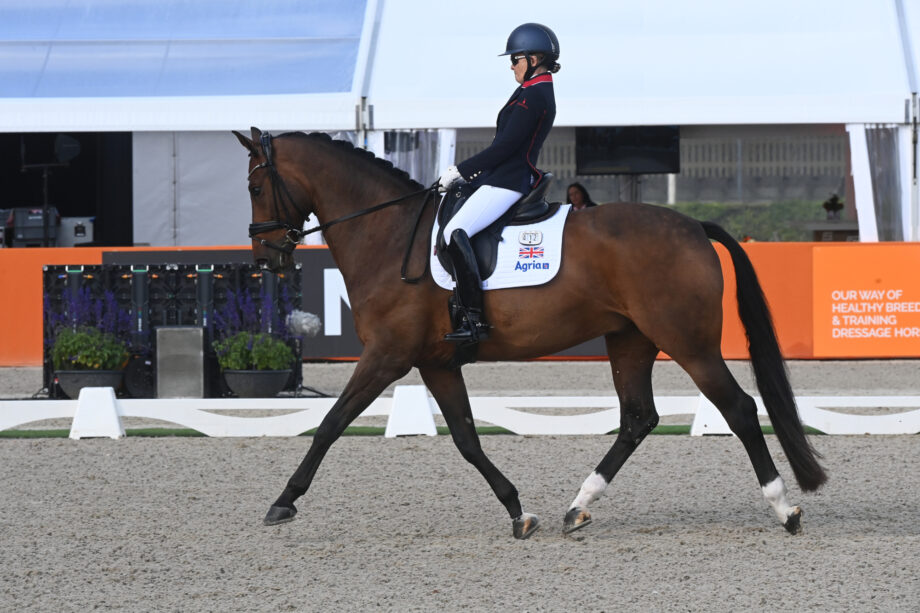
‘Stunned, shell-shocked, and super-pleased’: Nicola Naylor bags a third medal for Britain
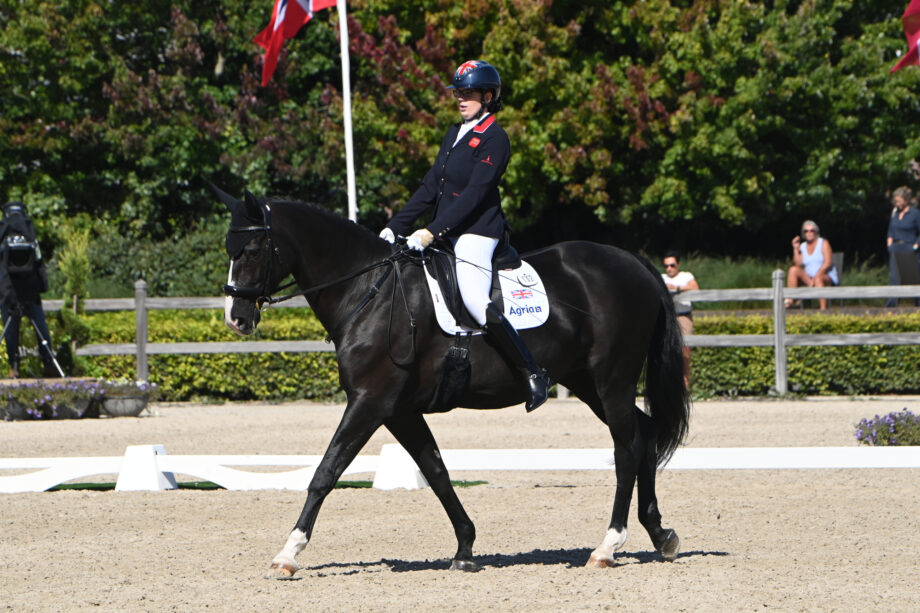
‘I’m on cloud nine’: Mari Durward-Akhurst claims her second European Championships medal
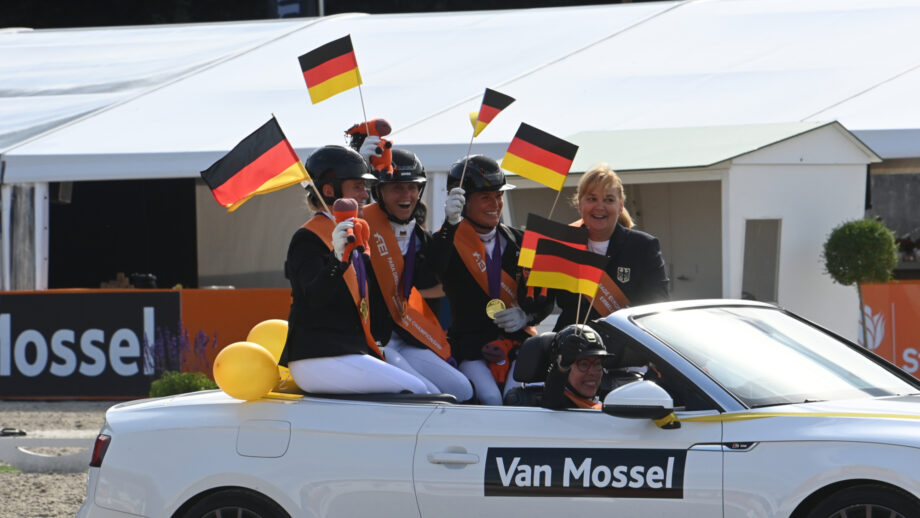
Historic team gold secured at European Para Dressage Championships as competition goes down to the wire

Subscribe to Horse & Hound magazine today – and enjoy unlimited website access all year round

